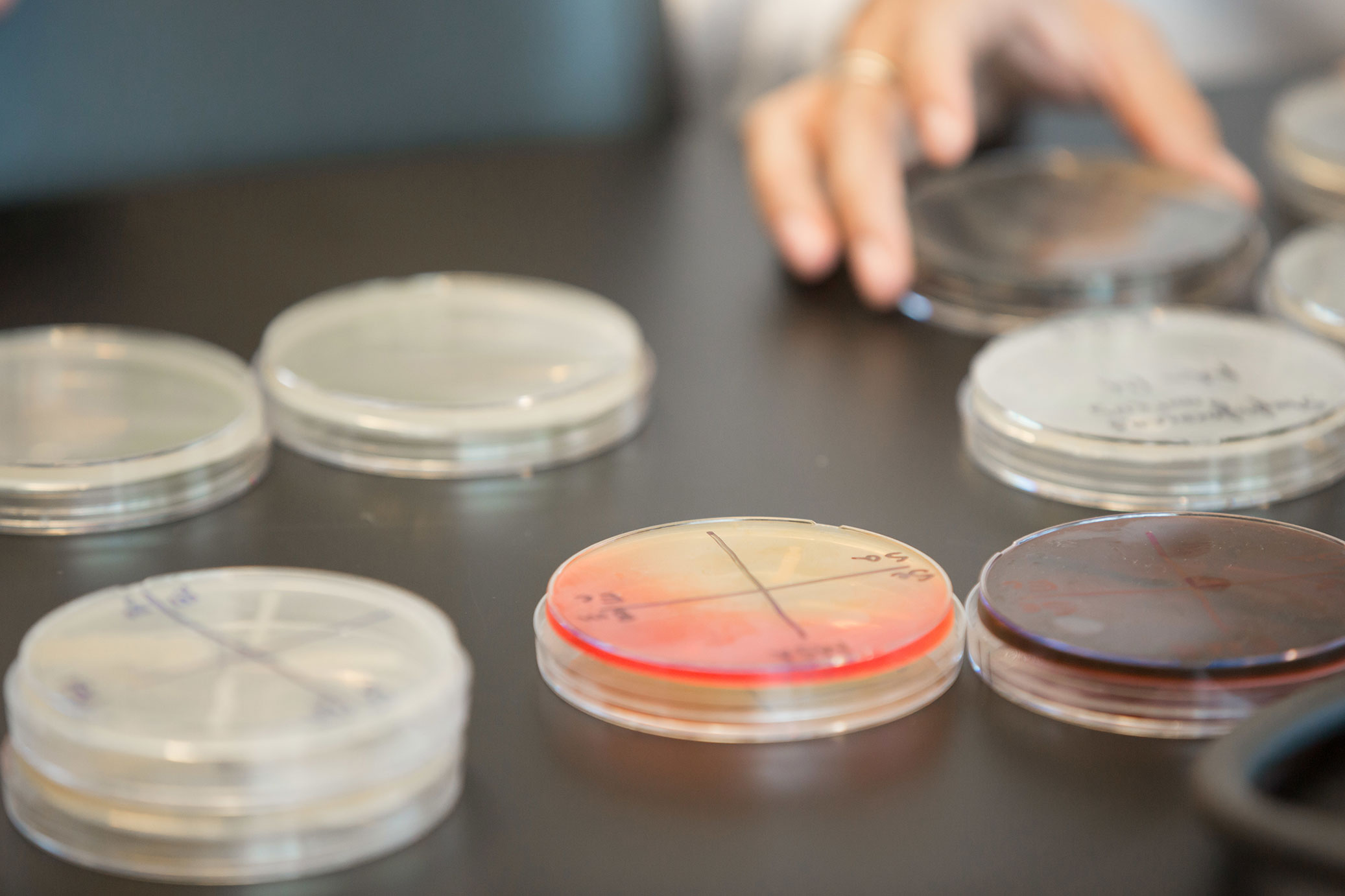Program Requirements
Students who complete the major requirements for a bachelor of arts (BA) or bachelor of science (BS) degree in biology will develop an understanding of living matter and awareness of the complexity of the interactions of the natural world. Students will be prepared to enter graduate or professional programs in biology or healthcare professions, to teach biology in middle or high schools, or to enter careers related to the biological sciences.
Major Requirements (BA)
Required semester hours
36 hours of major coursework
46 Core Curriculum credits
120 total credits for graduation
Major Requirements (BS)
Required semester hours
44 hours of major coursework
46 Core Curriculum credits
120 total credits for graduation
Minor Requirements
26 semester hours (sh)
- Required core courses (12 sh): BIOL 1250; 1260; 2270 or 2280
- Elective courses (14 sh): Any biology courses numbered 2100 or above
Academic Catalog Core Curriculum
Course Descriptions
The following descriptions are a sample of courses you may take as a biology major. For a complete list of required courses, please review the academic catalog.
Includes structure and organization of human organ systems emphasizing skeletal, muscular, digestive, circulatory, respiratory, nervous, and urogenital systems. Lab included with cadaver demonstrations. It is recommened that the student complete one year of high school laboratory science. This course is designed for students majoring in the sciences, healthcare, or nursing.
Includes cell systems, cell cycles, cell function, energy production and metabolic systems, biological control systems, protein synthesis, and genetics. Lab included. It is recommended that the student complete one year of high school laboratory science. This course is designed for students majoring in the sciences, healthcare, or nursing.
Survey of major animal phyla. Relationships between structure and function. Emphasis on the diversity of animal forms. Relationships of organisms with each other and with their environment. Lab included. Writing research course.
Survey of the plant kingdom and related organizsms from algae to flowering plants. Identification of campus Vascular plants. Basic life processes including photosynthesis, plant development, reproductive cycles, flowering and fruiting responses, and the ecological importance and conservation of plants. A WR emphasis with research term paper, experimental lab write-up and career development components. Lab included.
This course examines the efforts to understand biological origins and diversity. Patterns and principles of biodiversity and the significance of diversity will be considered. Emphasis will be placed on the principles and process of evolution rather than on the products of evolution. The class will include lecture, discussion, and workshop elements.
Study of living and non-living factors in biotic communities and their interaction in controlling the structure and development of various ecosystems. Principles of succession, population dynamics, and conservation. Supplemental trips may be included. Lab included.
An introduction to the study of ethology (animal behavior) with emphasis on the development of behavioral patterns, orientation, maintenance behavior, and social behavior. Supplemental overnight field trips included. Lab included.
An introduction to Mendelian and non-Mendelian inheritance patterns as well as molecular genetics and biotechnology. Lab included.
A study of genes and gene regulation of living organisms at the molecular level. Particular attention will be given to modern biotechnology, genomics, and gene functions. Lab included.
Reviews academic progress and career planning within the field of student's focus and interests. Students will reflect on major work and next steps of their professional development. The portfolio should be completed during the final semester before graduation.
A presentation of the basic laws of chemistry with emphasis on stoichiometry, atomic and electronic structure, bonding, and the states of matter(gas, liquid, solid, and solution). Properties and reactions of some elements and simple compounds are used to exemplify the principles. Chemistry I and II form a year's sequential study of the principles of chemistry with applications describing elements and compounds and their reactions. This sequence meets the needs of students majoring in the physical and biological sciences. Four hours lecture and two hours laboratory per week. Prerequisite: MATH placement above 1010 or co-requisite MATH 1010.
Continuation of Chemistry I with emphasis on the energy changes associated with transformations of matter, kinetics of reactions, and the equilibrium considerations associated with reactions. General reactions of metals and non-metals and their compounds are also considered (includes an introduction to coordination compounds). Four hours lecture and two hours laboratory per week.
A survey of the major functional classes of organic compounds including structure, nomenclature, properties, and reactions. Includes an introduction to the classes of natural products. Four hours lecture and two hours laboratory per week. Student must have completed one year of high school general chemistry.
A survey of chemistry of cellular compounds. Introduction to the different classes of biochemicals. Introduction to bioenergetics and enzymology and to the major pathways of cellular chemical events. Four hours lecture and two hours laboratory per week.
The chemistry of carbon compounds. Properties, synthesis, and reactions of saturated, unsaturated, and aromatic hydrocarbons, with emphasis on modern theoretical, mechanistic interpretations. Introduction to oxygen containing compounds. Four hours lecture and three hours laboratory per week.


